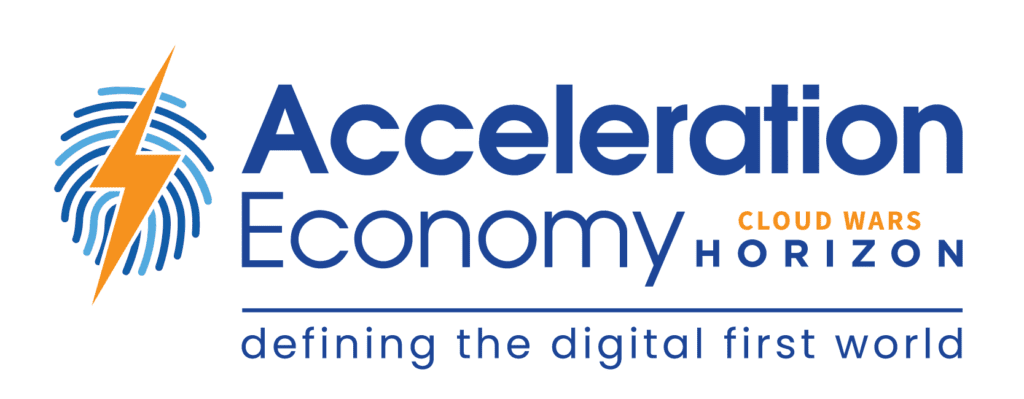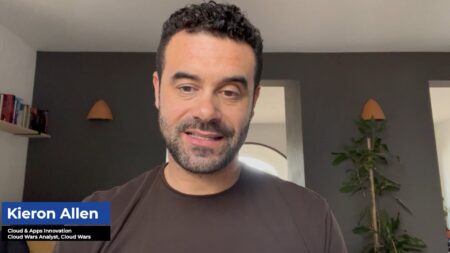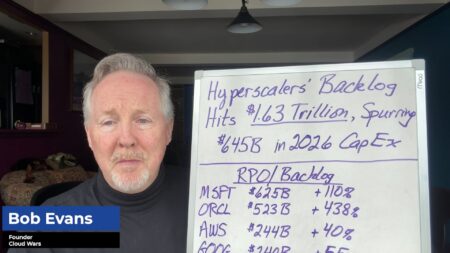A commitment to sustainability is becoming an increasingly important factor in business success. The public, and customers, demand that organizations have carbon-cutting goals in place; today, companies that don’t have such goals are the exception rather than the rule.
Much of this expectation arises because the most influential organizations in the world are championing sustainability and introducing carbon-cutting initiatives into their strategic roadmaps. These initiatives, in turn, are heavily publicized, creating a business climate where sustainability has emerged as a top business priority.
So it makes sense that some leading tech companies and various utility providers have joined forces to launch a collective sustainability initiative. And, with data playing such a critical role in ongoing sustainability efforts, it’s also unsurprising that the initiative is data-focused.
The project is called the Industry Data for Society Partnership. In this analysis, we’ll explain what it is, what it aims to achieve, who’s involved, and how the model could serve as a benchmark for other collaborative initiatives.
What is the Industry Data for Society Partnership, and Who’s Involved?
The Industry Data for Society Partnership (IDSP) is a cross-sector partnership that includes technology, energy, and utility organizations. The companies involved include:
- Microsoft
- Hewletter-Packard Enterprise (HPE)
- GitHub
- Northumbrian Water Group
- R2 Factory
- UK Power Networks
The partnership aims to open up private-sector data for social impact projects. This means the companies involved are committing to provide better access to their data to support targeted projects that address societal issues, such as climate change.
The partnership is a reaction to open data’s critical role in overcoming and informing populations during recent global events, none more significant than the Covid-19 pandemic.
As a result, the partnership has defined four core goals:
- Responsibly and inclusively making data more accessible in service of finding answers to immediate societal problems
- Sharing knowledge and information to enhance the utilization of data to benefit society
- Invest in giving a broad range of professionals the skills necessary for effective, responsible use of data in the service of social impact
- Guarding privacy in whatever it does
New York University GovLab’s Data Program and the Open Data Institute will act as expert affiliates to support the partners. While sustainability isn’t the only aim of the project, there are other social objectives, such as economic growth.
The Data for Local Environments Challenge will be one of the first projects to be undertaken by the partnership alongside the Open Data Institute. The initiative will use public and private data to examine the best ways for government officials to improve the local environment, including a path to net-zero emissions, in various cities and counties.
How Can the Partnership Model Work for You?
You don’t need to turn over billions of dollars annually to have quality sustainability data. Relevant data from any source is a valuable commodity, and that’s why the Industry Data for Society Partnership could be a viable model for smaller organizations.
Collaboration has skyrocketed in the Acceleration Economy. Consequently, organizations have closer ties with partners, and customers, than ever before. Small-scale partnerships between organizations, the more varied the better, could generate vast amounts of data to contribute to data-driven sustainability initiatives.
At the same time, efforts like these contribute to a company’s sustainability objectives. It’s out-of-the-box thinking for sure. Oftentimes, innovation requires willingness to take the unexpected path.
For more exclusive coverage of innovative cloud companies, check out Cloud Wars Horizon here:









